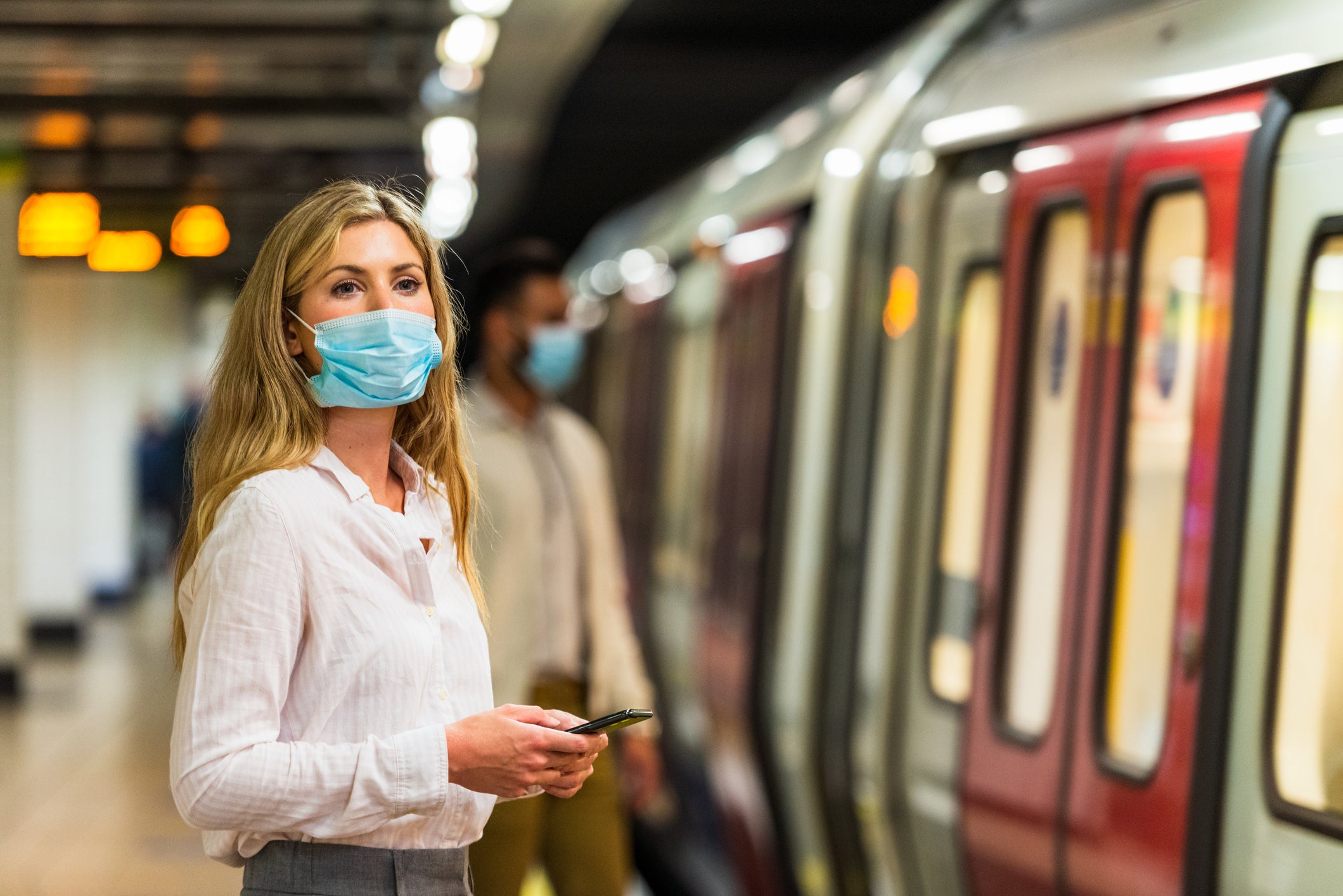Face mask rules in England: Where you do and don’t have to wear them
Government announces further changes to Covid restrictions

Your support helps us to tell the story
From reproductive rights to climate change to Big Tech, The Independent is on the ground when the story is developing. Whether it's investigating the financials of Elon Musk's pro-Trump PAC or producing our latest documentary, 'The A Word', which shines a light on the American women fighting for reproductive rights, we know how important it is to parse out the facts from the messaging.
At such a critical moment in US history, we need reporters on the ground. Your donation allows us to keep sending journalists to speak to both sides of the story.
The Independent is trusted by Americans across the entire political spectrum. And unlike many other quality news outlets, we choose not to lock Americans out of our reporting and analysis with paywalls. We believe quality journalism should be available to everyone, paid for by those who can afford it.
Your support makes all the difference.England is is set to remove most Covid restrictions on 24 February, meaning face coverings will no longer be mandatory in any public settings.
Face coverings were previously required, under Plan A, to be worn on public transport and in some indoor venues such as stores. This followed from Plan B, which lifted on 27 January, and saw face coverings required in the majority of indoor settings, including in supermarkets, pharmacies, shopping centres, places of worship, and public transport.
This was the case for everyone by law unless you were exempt from wearing a face covering. Currently, people in Northern Ireland and England are not legally required to wear one.
Meanwhile, in Scotland, masks will no longer be legally required from 21 March. In Wales, rules around face coverings are set to be relaxed on 28 February in venues such as museums, cinemas and in schools, but will still be required in shops, salons, hairdressers, public transport and health and social care.
The government announced further changes to restrictions on Monday 21 February, as it unveiled its plan for living with Covid. This includes the scrapping of self-isolation rules and the end of free universal testing for most of the British public.
Here’s everything you need to know about where you must wear face coverings.
Where don’t you have to wear a face covering?
Face coverings have not been required by law in indoor venues since Thursday 27 January.
Generally speaking, that includes shops, supermarkets, post offices, pharmacies, places of worship, museums and shopping centres.
However, certain companies or venues may choose to enforce their own rules regarding face coverings.
Where do you have to wear a face covering?
The government has said that local directors of public health are still able to temporarily recommend face coverings in communal areas but only in education settings and only where the department and public health experts judge the measures to be proportionate.
Additionally, infection prevention control guidance continues to require face coverings to be worn in health and care settings, including primary care and pharmacies.
While there are no rules regarding it, the government suggests that people still wear face coverings in crowded and enclosed spaces, particularly when they come into contact with people they would not normally meet.
However, this will be at the discretion of the public and anyone not wearing a mask won’t be criminalised.
Face coverings were previously mandatory when using the Transport for London (TfL) network, but London mayor Sadiq Khan has confirmed they will no longer be required.
But he urged passengers to “be considerate of their fellow Londoners” and added: “We know that face coverings remain a simple, effective measure that give Londoners confidence to travel, and following clear advice from public health advisers, TfL will likely continue to recommend their use on the network.”
Despite the fact that the law no longer requires people to wear face coverings in indoor settings, various companies have announced that they will still be enforcing them.
In Sainsbury’s, customers were asked to continue wearing face coverings in its stores if they are able to even after Plan B restrictions lifted.
Join our commenting forum
Join thought-provoking conversations, follow other Independent readers and see their replies
Comments